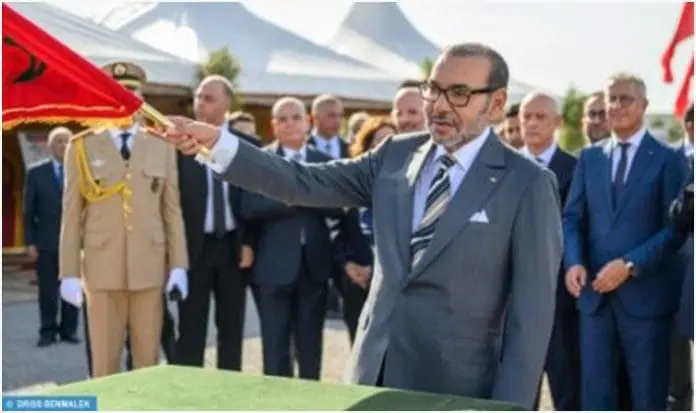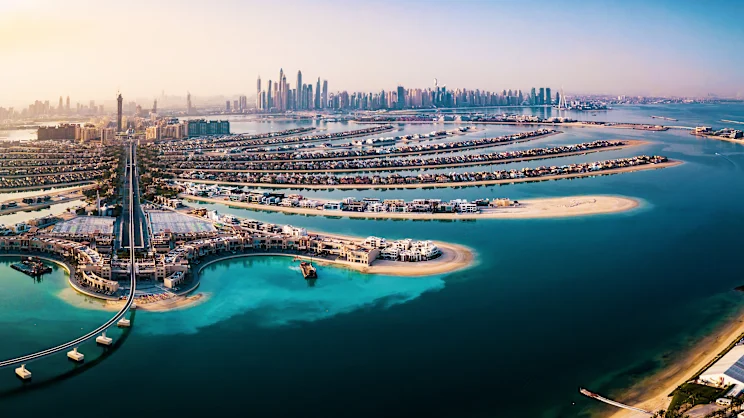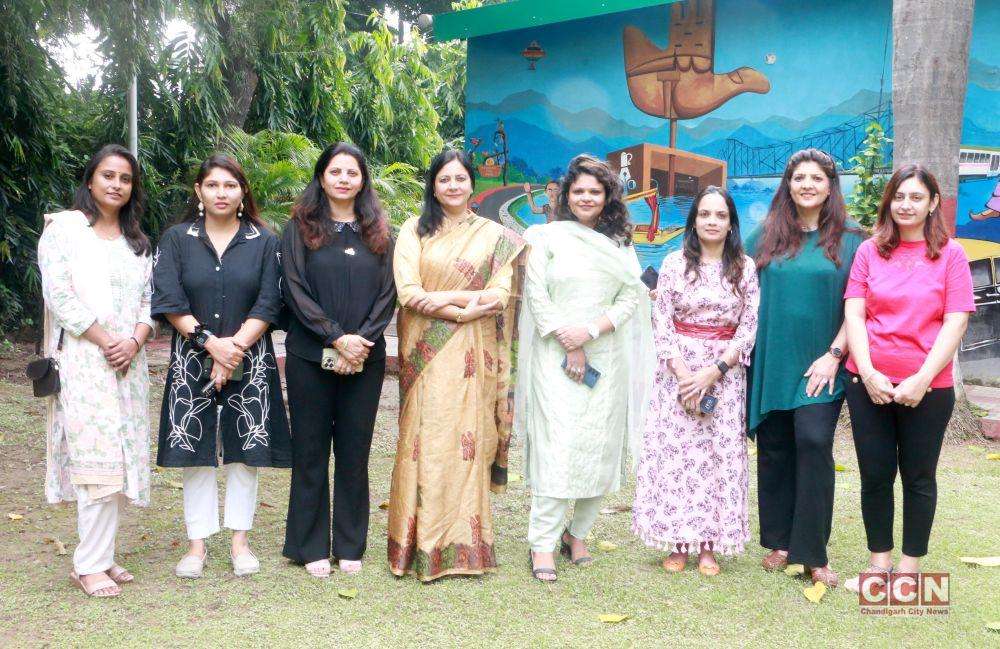King Mohammed VI Launches Major Railway Projects with Strong Impact on Mobility in Casablanca Metropolitan Area
By Ghana News,His Majesty
Copyright ghananewss

His Majesty King Mohammed VI inaugurated, on Wednesday at the Hay Hassani district prefecture in Casablanca, several major railway projects designed to have a strong impact on mobility within the Casablanca metropolitan area, with a total value of MAD 20 billion.
These flagship projects, which address the future challenges of urban mobility in the metropolis, are part of a comprehensive program with a total budget of MAD 96 billion.
The program mainly aims to support the steady development of the railway sector, following the launch, in April by His Majesty the King, of the Kenitra-Marrakech High-Speed Rail Line (430 km). It also seeks to develop regional connections between Kenitra and Casablanca, improve mobility within the urban areas of Casablanca, Rabat, and Marrakech and foster a new national railway industry ecosystem.
This integrated program reflects the Sovereign’s enlightened vision to enhance the national railway offering and aligns with the Kingdom’s strategic orientations, under His Majesty’s guidance, in terms of sustainable development, particularly the promotion of low-carbon collective mobility solutions.
The projects, financed 70% by the National Railways Office and 30% by the region, include the construction of three major new-generation stations, the establishment of 10 new local metropolitan train stations, the upgrade and adaptation of 5 existing stations for these local trains, the creation of 260 km of new railway lines, the construction and widening of 50 civil engineering structures, the building of 2 technical centers (Zenata and Nouaceur) and 5 maintenance workshops, as well as the acquisition of 48 new trains for local and regional services.
These initiatives aim to develop a sustainable regional transport system, strengthen daily mobility for passengers, contribute to socio-economic development and urban planning, and support the Kingdom’s national objectives for 2030.Regarding the three major new-generation stations, they will be integrated, high-performance structures serving enhanced territorial connectivity. One such project is the “Casablanca-South” Station, for which His Majesty the King officially launched construction on Wednesday at the Hay Hassani district.With an investment of approximately MAD 700 million, this project involves building a new facility equipped with cutting-edge technology meeting international standards for safety, security, and service quality.
With an annual capacity of 12 million passengers, the future “Casablanca-Sud” station will have 6 platforms and 10 tracks to accommodate the “Al Boraq” high-speed trains, long-distance trains, local metropolitan trains, regional trains, and the “Aero-Express” train, which will serve Mohammed V Airport from Casa-Port station every 15 minutes. It will also feature 20,000 m² of outdoor facilities and a 700-space parking lot.
Designed to handle growing passenger flows and foster a dynamic business district, the “Casablanca-South” Station will offer seamless connections to the tram, high-service buses, regular buses, and taxis, making it a strategic intermodal hub.The second new-generation station is the “Hassan II” Grand Stadium station in Benslimane, which, with investments of around MAD 450 million, will be able to accommodate up to 12 million passengers per year during the operational phase.
There is also the new station at Mohammed V International Airport in Casablanca, which will require a total budget of MAD 300 million and will have a capacity of 5 million passengers per year. These three major new-generation stations will be completed within 24 months.As for the new metropolitan commuter train stations, they will help improve mobility in Casablanca and the surrounding region through the new commuter rail service that will be launched by 2030, offering a frequency of up to one train every 7.5 minutes.
Three main lines, covering a total of 92 km, will be developed, providing efficient connections between the main urban and suburban centers, while ensuring access to strategic sites such as the Hassan II stadium and Mohammed V International Airport.
In this context, 10 new stations are set to be developed within 20 months and shall require a MAD 625 million financial package, according to a harmonious and smooth architectural scheme guaranteeing comfort, accessibility and efficiency for travellers. These are “Mohammedia – Faculties,” “Zenata,” “Sidi Bernoussi,” “Ain Sbâa,” “Hay Mohammadi,”Ville Nouvelle,” “Mers Sultan,” “Oasis,” “Sidi Maârouf” and “Nouaceur.” The existing stations will also be modernized to fully integrate the metropolitan commuter train. It should be noted that, once the commuter trains are in service, 150,000 passengers will be transported daily on the three lines.
In addition to the three local metropolitan train lines, an airport express service will directly connect Casa-Port station to Mohammed V International Airport with shuttles running every 15 minutes. Similarly, the regional train service will be reinforced on the El Jadida and Settat lines with shuttles running every 30 minutes.
To meet regional and local mobility needs, there are plans to purchase 48 railcars with a capacity of over 1,000 seats that operate at a speed of 160 km/h, at a cost of MAD 7 billion (excluding tax).South Korean manufacturer Hyundai Rotem, selected to supply these trains, will set up a factory in the country, which will be part of the railway ecosystem and a benchmark site designed to meet future national needs and thus contribute to the realization of medium-term export ambitions.
All these coherent, compatible, and integrated projects will generate knock-on effects that will benefit local communities in terms of job creation, safety, and environmental protection, while helping to improve citizens’ living conditions and create added value.



